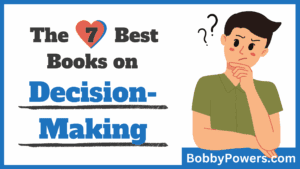1,000 True Haters
The comment caught me off-guard:
“You sound like a horror show of a manager. Daily critiques of my performance? Try setting milestones and discuss how best to meet them. This is a micro manage nightmare. No thanks…”
The response came on a story I wrote offering advice to managers on how to give feedback to struggling employees.
Leadership is a personal topic, so I always assume I’ll get some pushback when I dish out management advice, but this comment went further than most negative responses I’ve received.
That week, the comment rolled around in my head until I finally realized something interesting: the negative comment was a positive indicator.
I realized that the only reason I received that comment was because I had taken a stance. Rather than offering generic advice like “give feedback,” I had given readers a precise method for dealing with poor performers — up to and including how a manager could decide whether to fire someone.
I had staked out my turf and said: here’s where I’m standing. And I’m glad I did.
Why Haters Are a Good Thing
You know what types of articles don’t generate any negative comments?
- Boring articles (no one reads them)
- Poorly written articles (most readers don’t make it to the end)
- Unspecific articles (they’re too general to disagree with)
- Articles that don’t say something interesting (there’s nothing to argue)
You won’t get much pushback if you offer trite advice.
Why?
Because you’re not saying anything. You’re not taking a stance. Or you’re not sharing ideas with enough specificity for someone to disagree.
“It’s easy to get anonymous people to hate you — to attract haters. All you have to do is have an opinion. Be creative. Be yourself.” -James Altucher
The same traits that generate loyal fans result in generating haters:
- Have an opinion
- Write with specificity
A few examples:
- If you offer blasé advice like “give feedback,” you won’t generate haters. But recommend a specific feedback model and you will.
- Tell readers to “follow their passion” and everyone’s eyes glaze over. But tell them you quit your job and accepted a role five rungs back on the ladder and they’ll pay attention.
- Encourage readers to “listen more” and they’ll tune you out. But tell them silence is the key to wisdom and they’ll keep reading.
People want to feel something when they read a story. They want you to have an opinion and defend it. They don’t want to guzzle down another gallon of recycled slop they’ve tasted a hundred times.
The same goes for musicians, painters, graphic designers, and every other creative profession. Every artist needs to find their unique perspective.
Legendary music producer Rick Rubin says:
“People want things that are really passionate. Often the best version is not for everybody. The best art divides the audience. If you put out a record and half the people who hear it absolutely love it and half the people who hear it absolutely hate it, you’ve done well. Because it is pushing that boundary.”
Translation:
Haters indicate you’re creating something interesting.
Haters indicate you have backbone.
Haters indicate people are paying attention.
Common internet wisdom says you can build a career off “1,000 true fans.” But if you hit 1,000 true haters, I can almost guarantee you’ll become a success. The same writing that generated those haters will have also generated thousands of true proponents of your work.
“You cannot be a life-changing presence to some people without also being a complete f*cking joke to others. Part of the price of having impact is some hate. And usually that hate is proportional to the impact.” -Mark Manson
Malcolm Gladwell: Some People Will Hate You
“One of the blessings of experience is you stop paying attention to dumb criticism.” -Malcolm Gladwell
In a little-known 2021 interview, author Malcolm Gladwell shared some brilliant advice on how he thinks about critics.
Gladwell walks interviewer Ryan Holiday through a simple thought exercise: Let’s say you generously assume that 90 percent of readers will love your work and 10 percent of them will hate it.
Then he poses a question: Which would you rather have?
- 1 critic (which means you sold 10 books)?
- 100,000 critics (which means you sold 1 million books)?
It’s appropriate that this advice comes from Gladwell because I’ve heard haters deride him for oversimplifying ideas, dumbing down science, and repackaging old ideas.
But those are some of the reasons why I love Gladwell. Actually, he’s the reason I became a reader, and I’m forever grateful for the simplification and readability that have generated many of his haters.
What I’m NOT Saying
Let’s unpack a few ways readers may misinterpret this article:
- I’m not saying you should manufacture hyperinflated emotion just to polarize your audience. (That’s what has turned pockets of the internet into a cesspool.)
- I’m not saying you should intentionally try to piss people off. (That actively makes the world worse and makes you infamous for all of the wrong reasons.)
- I’m not saying you should value haters over fans. (Of course, haters aren’t the real goal. Are you crazy? The point is that if you’re successful, the haters will also come along for the ride.)
- I’m not saying you have free reign to write horrible, factless articles. (Any time you get a negative comment, you should ask yourself, “Did I fairly represent this issue? Could I have covered this topic better?” And if you made a mistake, own it.)
What I’m saying is that you should stand for something. Embrace your most unique self. Lean into your weirdness and share it with others.
“What makes you different or weird, that’s your strength.” -Meryl Streep
Again, there are two writing traits that generate both haters and fans:
- Have an opinion
- Write with specificity
If you end up writing with the authenticity and verve to generate 1,000 true haters, I’m sure you’ll have an illustrious career.
Say something. Be something. Do something.





thank you Love is the most powerful force